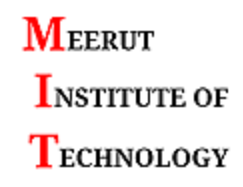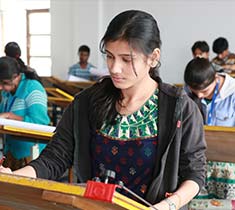About Course
The Department of Electronics and Communication Engineering at MIT,Meerut was established in the year 2007 to start a 4-year B.E. degree program me affiliated to UP Technical University, Lucknow.. The first batch of students graduated from the department in the year 2011. Thus from a modest beginning, the department has come a long way. Today, it is rated as one among the leading educational institutions of the state.
|
Duration:
|
4 years (8 semesters)
|
|
Department:
|
Electronics & Communication Engineering
|
|
Intake:
|
60
|
|
Affiliation:
|
Uttar Pradesh Technical University
|
|
Approvals:
|
AICTE
|
The Department caters all the needs of B.Tech. Course prescribed by AKTU Lucknow and provides learning and healthy environment which helps the budding professional to enhance their communication skills. The focus is to provide a platform for cutting edge technology and for imparting state of the art education. Thus, our elite software/hardware professionals get crucial training in all the emerging fields of Electronics and Communication Engineering. We attract some of the brightest students and faculty, and invite to join us in the enthusiasm.
UNIQUE FEATURES OF THE DEPARTMENT
The focus of the B.Tech. degree program is to caters all the needs of the branch and provides learning and healthy environment helping the budding professional to enhance their technical skills. The department provides a platform for cutting edge technology and for imparting state of the art education. The curriculum is designed to give adequate emphasis on the digital processing of information for efficient communication. In tune with the above objective, the syllabus features core courses like CAD of Electronics, DSP Architectures and Systems, Communication Switching Systems, Communication Electronic Circuits, Microwave Components and Circuits, Satellite Communication, Microprocessor & Microcontroller architecture, Electromagnetic Field Theory, Control Systems, Antenna & Wave Propagation giving a balanced coverage of the theory and practice of modern Communication Engineering. The core programme is supplemented and further reinforced by a well-chosen set of elective courses like VLSI Design, Artifitial Neural Network, VHDL permitting the students to specialize either in the software or the hardware aspect of Communication Systems.
The Department of Electronics & communication is a prestigious one and one of the most sought after branch. It has always strived to deliver quality education keeping with the various emerging trends. The College has proved its credibility and also the quality education imparted by it. The Department has at its disposal well equipped labs to provide hands on experience and to realize the practical aspect of theory learned. The Department has to its credit brilliant and dedicated engineers who have set benchmarks and proved themselves to be capable leaders in the ever evolving industry.
The Department of Electronics and Communication Engineering is one of the largest departments of the institute having largest student and faculty strength. Due to its modern infrastructure and exposure given to the students, it is one of the elite departments of the institute.
ELIGIBILITY
For admission to B.Tech courses the candidate must pass intermediate examination or equivalent {10+2} from any recognized board/university and must follow one of the following criteria: Preference will be given as per the following criteria- (i) Candidate who have appeared & qualified UPSEE (ii) Candidate who have appeared & qualified AIEEE (iii) Candidate who have passed 10+2 examination with PCM with marks more than 50%.
FEES STRUCTURE
Fees structure for all courses will be charged as approved by UPTU/State University. 2nd Year Entry: Candidate can take direct admission to 2nd year provided that he/she has passed 3 years Diploma (with a minimum of 60% marks) or B.Sc from recognized Institute or University in any branch of Engineering /Technology.
Contact Address
The Head of Department,
Electronics and Communication Engineering Department,
Meerut Institute of Technology.
NH-58, Bye-Pass Road, Baral Partapur,
Meerut - 250 103
Ph: 91 121 2441600, +919410230483
Fax: 91 121 2441700
Vision
“To impart quality technical education in the field of electronics and communication engineering and become
a centre of research generating
knowledge which lay the foundation in shaping the future technocrats”
Mission
“To create conducive teaching-learning environment by providing state of the art resources,
developing personality, professional skills and attitude to
meet the needs of industry and society”
Achievements
The department is committed to provide quality technical education to the students.
Some of the achievements of the department are:
Placement:
The students of ECE department have good placement record. Many students have been placed in the reputed companies,
institutes and research organizations of public and private sectors. TCS,Wipro, Infosys U.S. Technologies,
Accenture etc. are among few reputed private sector companies in which our students have been placed.
Many students got placed in public sector units like BEL, BHEL, DRDO, NTPC,BSNL, BANKING SECTORS etc.
In addition, many students
are pursuing higher studies from reputed Institutes of both India and Abroad.
Result:
Students of the ECE department have good academic record. Many of the students have secured
positions in the list of university merit holders. List of students whose name
appeared in the list of university merit holders is given below:
List of University Merit Holders of ECE department:
| Sl. No |
Batch |
Name of the students |
Semester |
Rank |
|
01 |
2003-04 |
Kanika Singhal |
I |
10th |
|
02 |
2004-05 |
Suneel Yadav |
I |
2nd |
|
03 |
2004-05 |
Pallavi Garg |
I |
9th |
|
04 |
2004-05 |
Kanika Singhal |
II |
6th |
|
05 |
2006-07 |
Kanika Singhal |
IV |
10th |
|
06 |
2007-08 |
Suneel Yadav |
IV |
3rd |
|
07 |
2009-10 |
Paritosh Garg |
VIII |
8th |
|
08 |
2010-11 |
Tripti Jain |
II |
3rd |
|
09 |
2011-12 |
Arshita Singhal |
VIII |
2nd |
|
10 |
2011-12 |
Aastha Garg |
VIII |
8th |
Accreditation
The department has been accredited by the ‘National Board of Accreditation (NBA)’.
Research Papers
Many faculty members of the department have been publishing research papers in conferences/journals of National/International repute. For the list of papers published by the faculty,
kindly refer to the ‘Research Section’ of the department.
Funded Projects
Under funded projects, the department has organized a Staff development programme, a National Conference and successfully completed a MODROBS scheme. All of these were funded by AICTE,
New Delhi. Details of the funded projects are here under:
| Sl No. |
Scheme |
Title |
Sponsored by |
Date/Duration |
|
01 |
Staff Development
Programme (SDP) |
VLSI Design: Recent Trends and
Future Aspects (VLSI-RTFA-2010)
|
AICTE, New Delhi |
8 to 13 October, 2010 |
|
02 |
MODROBS |
Modernization and Removal of CAD of
Electronics Lab |
AICTE, New Delhi |
2010-11 |
|
03 |
National Conference |
EMERGING Technologies in VLSI
(NCETVLSI-2011) |
AICTE, New Delhi |
18th October, 2011 |
Student’s Performance in the Extra-curricular Activities
In addition to qualitative academic activities, the emphasis is given on the extra-curricular activities. Apart from in-campus events: ‘Kolahal’ and ‘Tech-Sparda’, students also participate enthusiastically in different inter-institute events.
Achievement of some of the students in inter-institute events are listed below:
List of Students with Position in Inter Institute Activity
| Name of student |
Roll No. |
Branch / Year |
Activity Place and Date |
Remark |
Ashutosh Yadav,
Agardeep Singh |
0906831025
0906831008 |
EC-V |
Robotic Events at
KIET, Gzb., 2012-13 |
1st
Position |
Ashutosh Yadav,
Agardeep Singh |
0906831025
0906831008 |
EC-V |
Robotic Events at
MNNIT, Allahabad, 2012-13 |
2nd
Position |
|
Rahul Kumar Dubey |
1006831053
|
EC-VII |
ROBO CUP, KIET,
2012-13
AQUABOT, KIET,
2012-13
|
3rd
Position
3rd
Position |
Rohit Verma,
Shashank Kumar |
--
1006831060
|
EC-VII |
ROBO CUP, KIET,
2012-13 |
3rd
Position |
Ashutosh Yadav,
Agardeep Singh |
0906831025
0906831008 |
EC-V |
Robotic Events at
MNNIT, Allahabad, 2011-12 |
2nd
Position |
Ashutosh Yadav,
Agardeep Singh |
0906831025
0906831008 |
EC-V |
Robotic Events at
DTU, Delhi, 2011-12 |
1st
Position |
Ashutosh Yadav,
Agardeep Singh |
0906831025
0906831008 |
EC-V |
Robotic Events
Dr. KNMIET, Gzb.
IMS, Gzb, 2010-11 |
2nd
and 3rd |
|
Md. Irfan |
0706831037 |
EC-V |
Band Performance
at RGEC, Meerut, 2009-10 |
1st
Position |
Arpit Panwar,
Anil Nehra, Akshit Tyagi
Pushkar Chaudhary |
0606831015
0606831011
0606831006
0606831057 |
EC-VII |
Vollyball
Tournament at SDECT, Muzaffarnagar, U.P, 2009-10 |
1st
Position |
|
Navanita Das |
0806831039 |
EC-III |
Cross Country
Race at Shastri Nagar Kalyan Smiti, Meerut in Aug.,2009-10 |
1st
Prize |
|
Md. Irfan |
0706831037 |
EC-V |
Instrumental
competition at Lucknow Scientific Convention centre, Lucknow,
2009-10 |
1st
Position |
|
Nishant
Srivastava |
0706831005 |
EC-V |
Turncoat Event at
RGEC, Meerut in 5-7 March, 2009-10 |
2nd
Position |
|
Navanita Das |
0806831039 |
EC-III |
Creative Writing
event at R.G.E.C, Meerut in, 2009-10 |
3rd
Prize |
|
Navanita Das |
0806831039 |
EC-III |
Patriotic Song,
performed in front of members of parliament, Meerut
Constituency, 2009-10 |
--- |
Apporva Gupta,
Md. Irfan |
0706831015 |
EC-V |
National Level
Nukkad Natak youth festival (National Level Competition) at
Delhi Habitat Centre, Delhi, 2009-10 |
4th
Position |
GATE Qualified Students
Many of the ECE students have qualified GATE and other competitive examinations.
List of GATE-2014 qualified students is given below:
List of GATE-2014 Qualified Students
| Sl. No. |
Name |
Roll No. |
GATE Roll No. |
Score |
Rank |
|
01 |
Udit Gupta |
1006831076 |
--- |
902 |
75 |
|
02 |
Shivam Kansal |
1006831062 |
EC801905080 |
567 |
5540 |
|
03 |
Pramod Singh |
1006831047 |
EC801903342 |
611 |
4000 |
|
04 |
Sumit Saxena |
1006831072 |
EC802005067 |
588 |
4970 |
|
05 |
Deepak Singhal |
1006840030 |
-- |
555 |
6518 |
|
06 |
Saurabh Tiwari |
1006831057 |
EC801905132 |
491 |
10974 |
|
07 |
Molika Garg |
1006832023 |
-- |
386 |
23793 |
|
08 |
Sumit Pundir |
1006831071 |
-- |
482 |
13097 |
|
09 |
Deepak Punia |
1006832014 |
-- |
590 |
4556 |
|
10 |
Ankit Aggarwal |
--- |
--- |
699 |
2303 |
|
11 |
Shikha Goel |
1006831061 |
EC802006078 |
551 |
6744 |
|
12 |
Akansha Jain |
1006840008 |
-- |
603 |
4238 |
|
13 |
Devendra Kumar |
1006831023 |
-- |
737 |
1023 |
|
14 |
Arjun Singh |
1006831018 |
-- |
467 |
14023 |
|
15 |
Manu yadav |
1006831036 |
-- |
492 |
10125 |
|
16 |
Abhinav singh |
1006831003 |
-- |
395 |
20000 |
|
17 |
Ishan Gupta |
1006831031 |
-- |
420 |
18691 |
|
18 |
Hemant Gangwar |
1006831027 |
-- |
542 |
7231 |
|
19 |
Amar Jain |
1006831006 |
-- |
407 |
20596 |
|
20 |
Arun Suraniya |
1006831019 |
-- |
405 |
30339 |
|
21 |
Anusha Gahlot |
1006831014 |
-- |
357 |
29000 |
|
22 |
Apurva Tomar |
1006831016 |
-- |
460 |
14031 |
|
23 |
Anchal Tyagi |
1006831010 |
-- |
351 |
30912 |
|
24 |
Deepti Tyagi |
1006831022 |
-- |
394 |
22000 |
|
25 |
Sunil Kumar |
1006831073 |
-- |
407 |
18000 |
|
26 |
Tripti Jain |
1006831074 |
-- |
334 |
35461 |
|
27 |
Isha Mittal |
1006831030 |
-- |
344 |
30520 |
|
28 |
Pankaj Kumar |
1006831026 |
-- |
433 |
17158 |
|
29 |
Gaurav Jaiswal |
1006831024 |
-- |
451 |
14948 |
|
30 |
Vishakha Dhiman |
1006831080 |
-- |
411 |
20125 |
Laboratories
Digital Design Lab
OBJECTIVE
To gain the practical hands-on experience by exposing the students to various logic gates,Flip-Flops (FFs)
and designing of combinational and sequential circuits.
OUTCOME: After completion of this lab, students will be able to
- Identify nomenclature of digital ICs, their specifications, data sheet, concept of vcc and ground.
- Verification of the truth tables of logic gates and Flip-Flops.
- Understand implementation of Boolean functions using different gates.
- Understand applications of gates and FFs in designing digital circuits.
Sensor and Instrumentation Lab
OBJECTIVE:
To familiarize the students with different types of sensors and transducers. To understand different signal conditioning that are
required to acquire this data for computer and telemetry.
OUTCOME: After completion of this lab, students will be able to:
- Understand operation of different instruments.
- Describe different terminology related to measurements.
- Understand principles of various types of transducers and sensors.
Signal and Systems Lab
OBJECTIVE:To give practical knowledge of various tools and techniques for
signal and systems analysis using MATLAB software.
OUTCOME: After completion of this lab, students will be able to understand
- Signals and systems
- Analysis of signals and systems
- Verification of signals and systems properties
- Implementations of analysis tools such as Fourier series, Fourier transform, Z-transform etc.
Electronic Devices Lab
OBJECTIVE:
To expose the students with practical awareness of the components like diode, transistor (BJT &FET) & study of their
characteristics different applications.
OUTCOME: After completion of this lab, students will be able to understand
- Functions of CRO, multi-meter, function generators, power supply, components, bread-board etc.
- Characteristics of P-N junction diode, Zener diode, BJT, FET, DIAC, TRIAC etc.
- Design and analysis of circuits like half wave/ full wave rectifier, amplifier, voltage regulator etc.
Electronics Circuit Lab
OBJECTIVE:
To make the students aware of Op-Amp, BJT, FET, their parameters,
characteristics, analysis and different applications.
OUTCOME: After completion of this lab, students will be able to understand
- Parameters and characteristics of Op-Amp, FET and BJT.
- Implementation of these devices in different circuits.
- Analysis of these devices and their circuits.
Network Analysis and synthesis Lab
OBJECTIVE:
To understand the two port networks, their various parameters and different
electrical networks using various techniques.
OUTCOME: After completion of this lab, students will be able to understand
- Fundamental concepts of network analysis and synthesise of two port network.
- Analysis and verification of different theorems such as Thevenin, Norton, Maximum Power Transfer etc.
- Linearity and superposition concepts to analyze RL, RC and RLC circuits in time and frequency domain.
PCB and Electronic Workshop Lab
OBJECTIVE:
To give hand-on experience of circuit design, PCB design, soldering and transformer winding.
OUTCOME: After completion of this lab, students will be able to understand
- Transformer winding.
- Different steps in PCB designing and fabrication.
- The method of manual soldering.
- Circuit assembly on PCB.
Microprocessor Lab
OBJECTIVE:
To expose the students to microprocessor architectures of 8085 and 8086, their programming, applications
and interfacing using various peripheral devices.
OUTCOME: After the completion of this lab, students will be able to understand
- Basics of 8085 and 8086 microprocessor architecture.
- Assembly language programming of 8085.
- Interfacing of 8085 and 8086 with different peripherals.
Control System Lab
OBJECTIVE:
To provide the knowledge of basic concepts of various control systems like P,PI and PID, Synchro trans-receiver system, concepts of
stability and time response analysis of different systems.
OUTCOME: After completion of this lab, students will be able to understand
- Speed/position control of DC/AC motors.
- Basics of magnetic amplifiers, synchro trans-receiver, PID, LEG-LEAD compensator etc.
- Simulation analysis of different systems using MATLAB.
Integrated Circuits Lab
OBJECTIVE:
To deliver the knowledge of Op-Amp, its parameters and applications,
linear ICs its applications in the implementation of different circuits.
OUTCOME: After the completion of this lab, students will be able to understand
- Basics of Op-Amp IC.
- Applications of Op-Amp IC in designing log/antilog amplifier, voltage comparator, filters, oscillator,
astable, mono stable multi-vibrator etc.
- Basics of PLL and determination of various parameters.
Communication Lab-I
OBJECTIVE:
To gain the practical hand-on experience on various analog modulation & demodulation techniques, different methods of sampling, reconstruction,
study of different antennas and their parameters.
OUTCOME: After completion of this lab, students will be able to understand
- Basics of analog modulation/demodulation techniques.
- Significance of sampling, its types, method of generation and detection of sampled signals.
- Generation and reconstruction of PAM, PWM and PPM.
- Different antennas and their parameters.
Communication Lab-II
OBJECTIVE:
To give the practical exposure of various digital modulation and demodulation techniques,
data encoding, decoding methods, their significance and applications.
OUTCOME: After completion of this lab, students will be able to understand
- Modulation/demodulation of digital modulation techniques such as ASK, FSK, PSK, their
significance and advantages over analog one.
- Various data formatting techniques such as NRZ, RZ, Manchester, AMI, CMI etc.
- Basics of error detection and correction using Hamming codes.
CAD of Electronics Lab
OBJECTIVE:
To educate students with design and simulation of analog and digital circuits using
various softwares like PSPICE, XILINX and Tanner.
OUTCOME: After the completion of this lab, students will be able to understand
- Fundamentals of PSPICE and VHDL software
- Implementation and analysis of BJT, CMOS, NMOS, NOR and NAND gate invertors using PSPICE software.
- Implementations and simulation of different logic circuits using VHDL.
DSP Lab
OBJECTIVE:
To gain the practical hand-on experience of various digital signal processing tools and techniques using MTALAB and to understand
the concepts of DSP processors its architecture using MATLAB.
OUTCOME: After completion of this lab, students will be able to understand
- Basics of MATLAB syntax, functions and programming.
- Implementation of various signal processing algorithms like linear/circular convolution, DFT/IDFT, FFT/IFFT etc. using MATLAB.
- Implementation of DTMF sequence generator and its analysis.
- Implementation and analysis of AM, FM and FSK modulation schemes using MATLAB.
- Study of DSP architecture and working using DSP kit.
Microwave and Optical Fiber Communication Lab
OBJECTIVE:
To gain the practical hand-on experience by exposing the students to various microwave components, their characteristics, transmission and
reception of the microwave signals and study of optical fiber trainer kit.
OUTCOME: After the completion of this lab, students will be able to understand
- Characteristics of Reflex Klystron.
- Basics of microwave components such as rectangular waveguide, tee, isolator, directional couplers etc. and measurement of different parameters
- Radiation pattern of antennas and measurement of their various parameters.
Electronic Circuit Design Lab
OBJECTIVE:
To design a minor project in hardware. Implement and simulate using PSPICE,
VHDL and MATLAB and compare with the hardware design specifications.
OUTCOME: After the completion of this lab, students will be able to understand
- Hardware implementation using different ICs and components.
- Simulation using different EDA software.
- Performance comparison parameters and comparison between hardware and software design specifications.
Electronic Engineering Lab
OBJECTIVE:
To expose students with the knowledge of basic concepts of electronic
components like diode, transistors and operational amplifiers etc.
OUTCOME: After completion of this lab, students will be able to
- Understand operational controls of function generator.
- Identify the component, calculate and measure their values.
- Use them on breadboard and build small circuits like rectifiers, switches, amplifiers, etc.
Electrical Engineering Lab
OBJECTIVE:
To give knowledge of various theorems for the passive networks and analysis of AC and DC circuits.
OUTCOME: After completion of this lab, students will be able to understand
- Basic principles of Electrical Engineering and measuring instruments.
- Utility of various network theorems, 3-phase induction motor, single phase induction motor and transformers.
Electromagnetic Field Theory Lab
OBJECTIVE:
To understand students the implementation and analysis of different potentials, fields and principle of
propagation of uniform plain wave using MATLAB.
OUTCOME: After completion of this lab, students will be able to understand
- Behaviour of static electric fields in different co-ordinate systems.
- Analysis of electromagnetic wave propagation in free space.
- Analysis of transmission lines and their parameters.
Project Lab
OBJECTIVE:
To design a major project in hardware, software or combination of both.
OUTCOME: After the completion of this lab, students will be able to understand
- Analysis and synthesis of different systems.
- Hardware implementation using different ICs, components and microcontrollers/microprocessors.
- Simulation using different EDA softwares.
- Performance comparison parameters and comparison between hardware and software design specifications.
Events
Guest Lecture
Guest Lecture/Quizzes/In-house workshops: To keep students abreast with the latest technological developments,
department organizes several guest lectures by eminent academicians. Further, quiz competitions are organized
among students to motivate them for general awareness and prepare them for competitive exams.
In-house faculty development workshops help the less experienced faculty to induct the expertise of experienced
faculty members. Guest Lecture/Quizzes/In-house workshops organized
by the department is given below:
| Event |
Target Participants |
Topic |
Date |
|
Quiz competition |
2nd
and 3rd year students |
As
per syllabus of GATE & IES Examination |
12,
14 & 15 November, 2013 |
|
In-house Workshop |
Faculty of ECE |
Electronics Engg. |
12-20 December, 2013 |
|
In-house Workshop |
Faculty of ECE |
Electrical Engg. |
12-20 December, 2013 |
|
In-house Workshop |
Faculty of ECE |
Electronics Engg. |
22-27 July, 2013 |
|
In-house Workshop |
Faculty of ECE |
Electronics Engg. |
22-27 July, 2013 |
|
In-house Workshop |
Faculty of ECE |
Topics from Diverse Areas of ECE |
22-27 July, 2013 |
Details of Guest Lectures
| Event |
Guest Person |
Organization |
Topic |
Date |
Event |
|
Workshop |
Mr. Chandan
Verma |
Wisdomware
Technology Pvt. Ltd. |
2nd
and 3rd year students |
Robotics and
Embedded System |
19-20 Feb.2014 |
|
Guest Lecture |
Mr. Chandan
Verma |
Technowave
India, Meerut |
2nd
and 3rd year students |
Lecture on
Embedded System |
14/03/2013 |
|
Guest Lecture |
Dr. Sanjay
Sengupta |
NISCAIR, New
Delhi
|
3rd
and 4th year students |
Science
Communication in India CSIR-NISCAIR activities and JSIR |
18/08/2012 |
|
Guest Lecture |
Prof. (Dr) R.
C. Jain |
Jaypee
Institute of Information Technology, JIIT, Noida |
3rd
and 4th year students |
Interference
Suppression on Radio Navigation |
21/11/2012 |
|
Guest Lecture |
Dr. B. K.
Kaushik, |
IIT, Roorkee
NIT, Kurukshetra |
3rd
and 4th year students |
Encoding in
VLSI Interconnect |
18/09/2011 |
|
Guest Lecture |
Dr. R. K.
Sharma |
IIT, Roorkee
NIT, Kurukshetra |
3rd
and 4th year students |
Direct Digital
Synthesizer |
18/09/2011 |
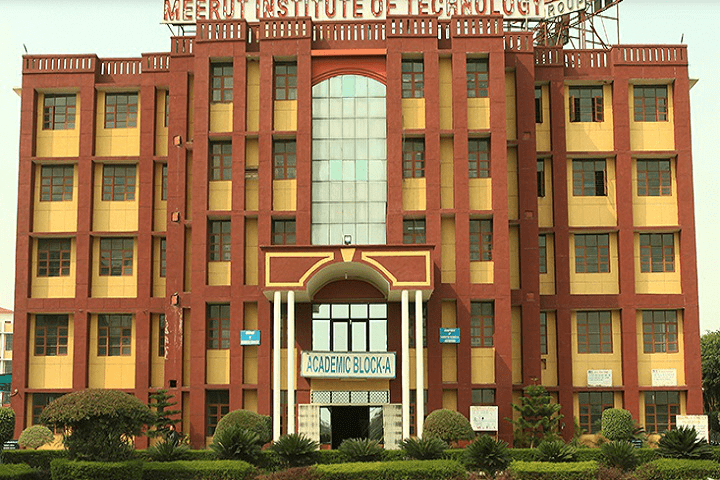
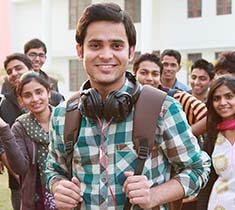
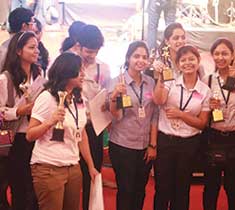
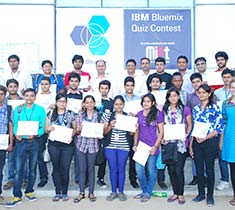
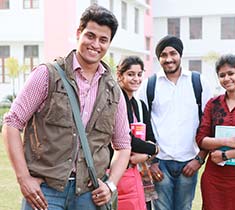


.png)



